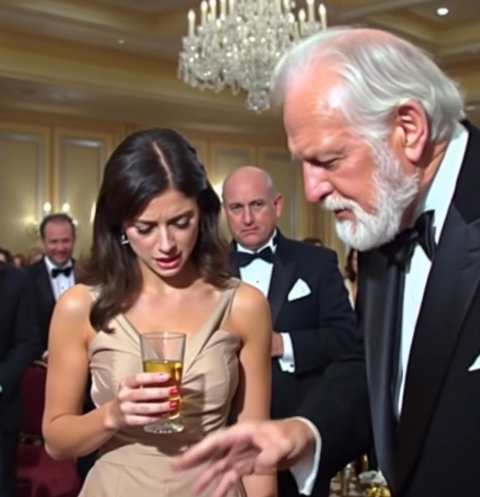
The letter began, “My dearest Catherine, you are stronger than you know, and your worth is not measured by money or titles.” My mother’s familiar, comforting script filled the pages, and as I read, I could hear her voice as if she were sitting beside me.
She wrote about her realization that the world my father inhabited was not one she wanted for me. She had seen the greed and competition that consumed him and had chosen a different path for herself and, by extension, for me. “When you were young,” she continued, “I made a decision to protect you from that life, to give you the gift of freedom to pursue what truly matters.”
My mother had set aside her own modest inheritance, ensuring that I would have a cushion to fall back on if ever I needed it. “Your father never knew,” she wrote, “and I hope you understand why. I wanted you to make your own life, to find joy and fulfillment beyond the confines of wealth.”
As I read the letter, I realized how deeply my mother’s decision had shaped my life. My love for literature, my career in academia, and my commitment to teaching were all rooted in the values she had instilled in me. She had given me the freedom to choose my own path, free from the expectations of an inheritance that came with strings attached.
Tears welled up in my eyes as I finished the letter, but they weren’t tears of sadness. They were tears of gratitude for a mother who had understood me in ways my father never could. Her words were a reminder that my life had meaning and purpose beyond the material possessions my brothers now bickered over.
The next day, I returned to the college campus with a renewed sense of purpose. I stood before my students, talking about the transformative power of literature and how stories could shape our understanding of ourselves and the world around us. I realized my mother’s legacy was not in the form of wealth, but in the values she had imparted to me and the lives I could touch through my teaching.
As the weeks went by, I started to see my father’s actions in a different light. His need to control and belittle was a reflection of his own insecurities, and I felt a sense of pity rather than anger. My mother’s quiet strength and foresight had liberated me from the burden of his expectations.
The letter became a cherished reminder of her love and wisdom, something I would carry with me always. It was a testament to the power of a mother’s love, a love that transcended time and circumstance, guiding me when I needed it most.
In the end, the night of my father’s birthday was not a loss, but a revelation. It was the night I discovered where my true inheritance lay—not in yachts or company shares, but in a legacy of integrity, courage, and the unwavering belief that my life had its own unique value.
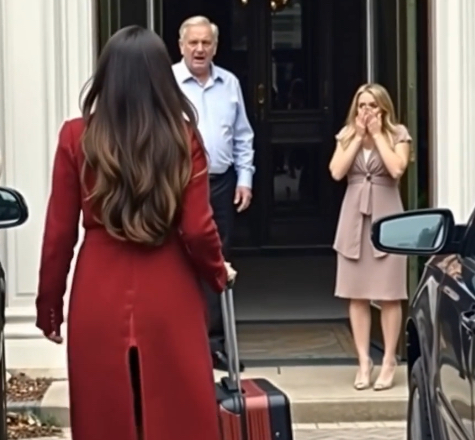
In the quiet solitude of my cramped apartment, I sat down and began to pull apart the threads of my shattered trust. For twenty years, I had sacrificed my own life to support my family, believing every word they said like gospel truth. Now, I had learned the hard way how easily love could be exploited and turned into a weapon. But if they thought I would simply fade away, content to let the betrayal fester in my heart, they were sorely mistaken.
The night was a blur of keystrokes and phone calls. I reached out to old friends in law enforcement, in finance, in journalism, piecing together the perfect storm that would dismantle the façade of my family’s newfound wealth. Every financial record I could access, every trace of my hard-earned money, was laid bare. It was time for them to face the consequences of their deception.
By morning, the files I compiled were damning. They documented every transaction, every lie, every manipulation. I hit send on the email blast that would deliver these truths to the necessary authorities and the media. As the sun rose, I took a deep breath, knowing the storm was about to break.
The response was swift and overwhelming. Bank accounts were frozen, assets were seized, and subpoenas were issued. My sister’s social media, once a showcase of extravagant living, went silent as the world she had built on lies began to crumble. The mansion stood empty, its grand façade a poignant symbol of falsehood and greed.
In the days that followed, the fallout was spectacular. News outlets picked up the story, portraying it as a cautionary tale of familial betrayal and the destructive power of greed. I heard through mutual acquaintances that my parents were left bewildered, unable to comprehend how their empire had fallen apart so quickly. My sister’s cries of indignation echoed in my mind, a bitter symphony of regret.
Amongst the chaos, I found a strange sense of peace. The years of guilt and doubt had lifted from my shoulders, replaced by the clarity of truth. I realized that while I couldn’t reclaim the years lost or the opportunities sacrificed, I had finally reclaimed my own narrative. I was no longer the victim of their story, but the architect of my own.
The world moved on, as it always did, but I was changed. I had learned a harsh lesson about trust and the limits of familial bonds. I was free, and in that freedom, I began to find myself again. There was a life to be rebuilt, new dreams to be dreamt, and perhaps, someday, forgiveness to be granted—not for their sake, but for mine.
As I stepped into the future, I carried with me the strength of survival and the knowledge that I had done what was right. I had faced betrayal and emerged not as a victim, but as a testament to resilience and the unyielding pursuit of justice.
Three Months After My Child Was Born, He Left Us
Three months after my child was born, my husband packed a small bag, stood by the door, and said words I will never forget:
“I can’t live like this anymore. I’m leaving. Forgive me.”
There was no shouting. No dramatic fight. Just exhaustion in his eyes and a quiet finality in his voice. 😔🚪
I stood there holding our baby, still so tiny, still smelling of milk and warmth, and watched the man I thought would grow old with me walk out of our home.
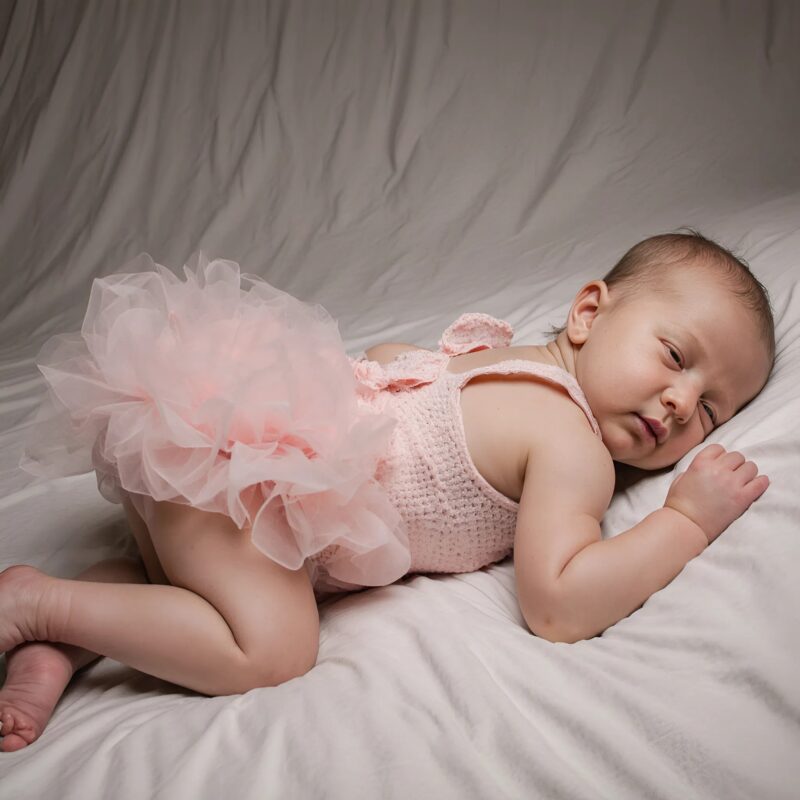
Those first days were the hardest. The nights felt endless. The silence after the baby fell asleep was heavier than any noise. 🌙🍼 I cried quietly so my child wouldn’t hear, wondering how love could disappear so quickly, how promises could break so easily.
Life became a routine of survival. Wake up. Feed the baby. Rock him to sleep. Clean. Repeat. ⏰👶
There was no time for self-pity, even when my heart ached. I learned to do everything alone — doctor visits, sleepless nights, moments of fear when my child cried and I didn’t know why.
People said things like, “You’re so strong,” but strength wasn’t a choice. It was a necessity. 💪💔
I didn’t feel strong. I felt abandoned. Still, every time my baby smiled at me, something inside me healed just a little.
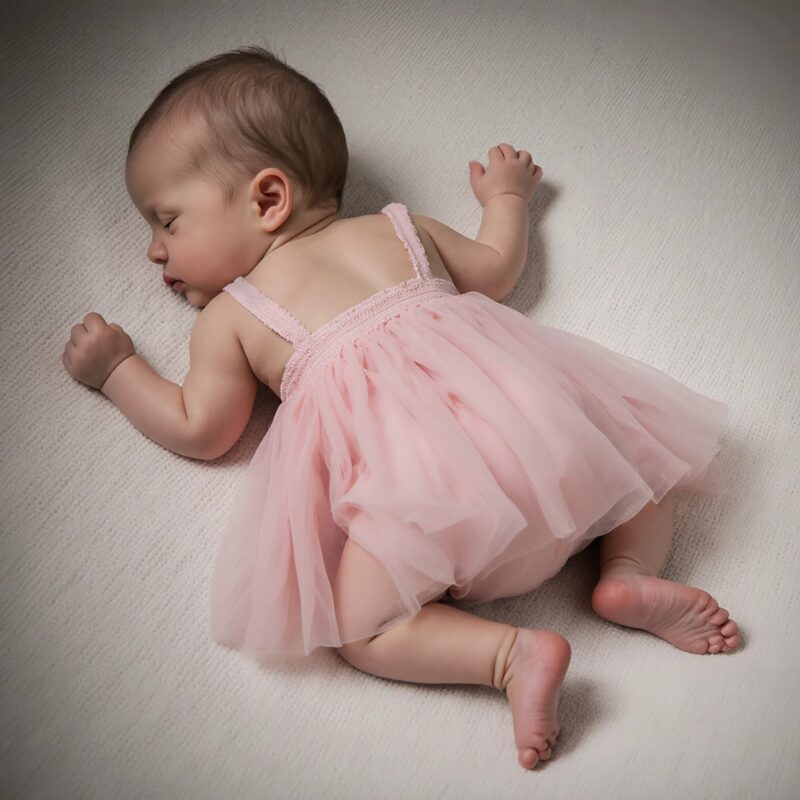
Months passed. Slowly, painfully, but surely. 🌱
I found work I could do from home. I learned how to budget carefully. I discovered that I was capable of far more than I ever imagined. Each small victory — paying a bill on time, calming my child during a fever, laughing again — rebuilt pieces of my confidence.
Then life changed again.
My husband began calling. At first, I ignored him. 📱❌
Then the messages became longer. Apologies. Regret. He said he was lonely. That life without us wasn’t what he expected. That he missed his child. That he had made a terrible mistake.
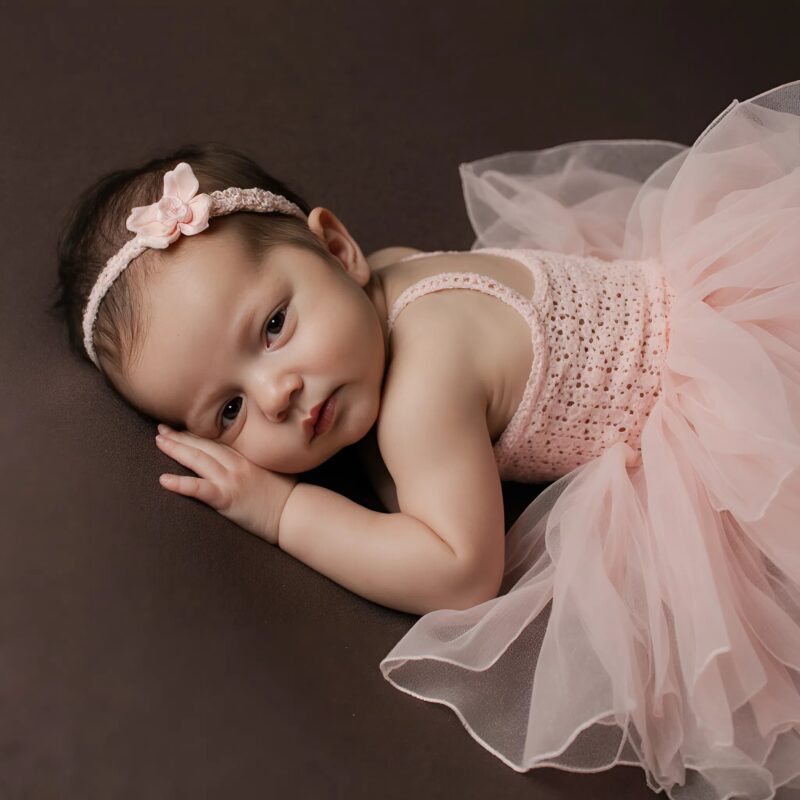
I listened, but I didn’t rush. I had learned something important during his absence: love without responsibility is just a word. 🧠❤️
I told him about the nights he missed, the milestones he never saw, the strength I had been forced to find alone.
That’s when reality truly reached him.
He saw photos of our child walking, laughing, growing — moments he could never relive. 📸👣
He realized that while he had escaped discomfort, he had lost something irreplaceable.
When we finally met face to face, he looked different. Older. Quieter. His regret wasn’t loud or dramatic. It was heavy, written in his posture and his eyes. 😞
He said, “I thought I was saving myself. I didn’t know I was destroying everything that mattered.”
I didn’t celebrate his pain. I didn’t seek revenge. I simply stood firm. 🌿
I told him that regret doesn’t erase absence, and apologies don’t rewind time. Trust, once broken, must be rebuilt slowly — if at all.
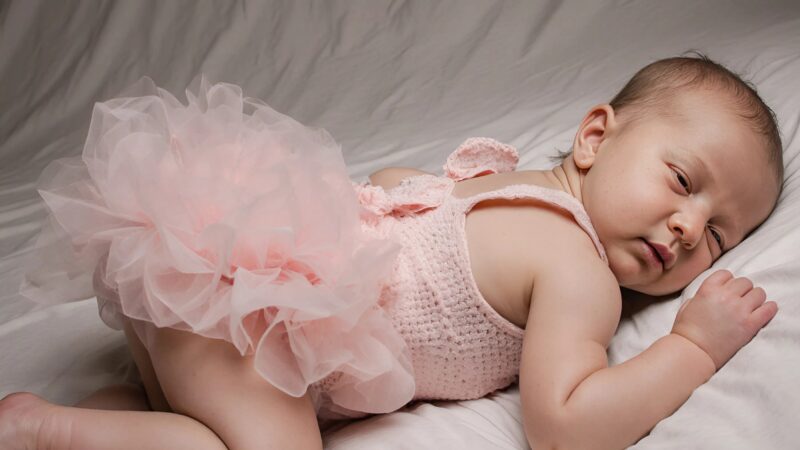
Today, I don’t know what the future holds. What I do know is this: I survived the moment I thought would break me. 🌟
My child grew up seeing strength, not abandonment. Love, not fear.
And my husband learned the hardest lesson of all — some doors close forever, and some losses teach us too late what truly mattered.
Three months after my child was born, my husband packed a small bag, stood by the door, and said words I will never forget:
“I can’t live like this anymore. I’m leaving. Forgive me.”
There was no shouting. No dramatic fight. Just exhaustion in his eyes and a quiet finality in his voice. 😔🚪
I stood there holding our baby, still so tiny, still smelling of milk and warmth, and watched the man I thought would grow old with me walk out of our home.

Those first days were the hardest. The nights felt endless. The silence after the baby fell asleep was heavier than any noise. 🌙🍼 I cried quietly so my child wouldn’t hear, wondering how love could disappear so quickly, how promises could break so easily.
Life became a routine of survival. Wake up. Feed the baby. Rock him to sleep. Clean. Repeat. ⏰👶
There was no time for self-pity, even when my heart ached. I learned to do everything alone — doctor visits, sleepless nights, moments of fear when my child cried and I didn’t know why.
People said things like, “You’re so strong,” but strength wasn’t a choice. It was a necessity. 💪💔
I didn’t feel strong. I felt abandoned. Still, every time my baby smiled at me, something inside me healed just a little.

Months passed. Slowly, painfully, but surely. 🌱
I found work I could do from home. I learned how to budget carefully. I discovered that I was capable of far more than I ever imagined. Each small victory — paying a bill on time, calming my child during a fever, laughing again — rebuilt pieces of my confidence.
Then life changed again.
My husband began calling. At first, I ignored him. 📱❌
Then the messages became longer. Apologies. Regret. He said he was lonely. That life without us wasn’t what he expected. That he missed his child. That he had made a terrible mistake.

I listened, but I didn’t rush. I had learned something important during his absence: love without responsibility is just a word. 🧠❤️
I told him about the nights he missed, the milestones he never saw, the strength I had been forced to find alone.
That’s when reality truly reached him.
He saw photos of our child walking, laughing, growing — moments he could never relive. 📸👣
He realized that while he had escaped discomfort, he had lost something irreplaceable.
When we finally met face to face, he looked different. Older. Quieter. His regret wasn’t loud or dramatic. It was heavy, written in his posture and his eyes. 😞
He said, “I thought I was saving myself. I didn’t know I was destroying everything that mattered.”
I didn’t celebrate his pain. I didn’t seek revenge. I simply stood firm. 🌿
I told him that regret doesn’t erase absence, and apologies don’t rewind time. Trust, once broken, must be rebuilt slowly — if at all.

Today, I don’t know what the future holds. What I do know is this: I survived the moment I thought would break me. 🌟
My child grew up seeing strength, not abandonment. Love, not fear.
And my husband learned the hardest lesson of all — some doors close forever, and some losses teach us too late what truly mattered.
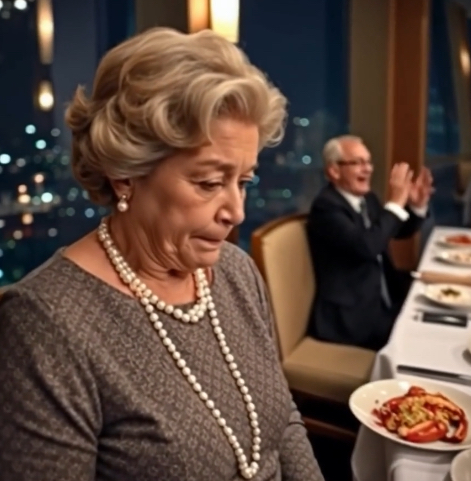
“Good evening, Mrs. Thompson,” the chef said with a warmth that cut through the chilly atmosphere at the table. “I didn’t expect to see you here tonight. It’s been too long since your last visit.”
The silence was palpable, as if the entire room was holding its breath. My son and his wife’s eyes widened, their forced smiles faltering. Marlene’s parents stared, their wine glasses paused mid-air, unsure of what to make of this unexpected turn.
I met the chef’s gaze and returned his smile, one that held genuine warmth. “Indeed, it has, Chef Anton. I’m just here for a quiet evening with family.”
The chef nodded, clearly aware of the dynamics at play. “Well, it’s an honor to have you here. Would you allow me to prepare something special for you?”
My son shifted uncomfortably in his seat, likely calculating how this revelation might shift the evening’s control. Marlene’s face tightened, her earlier smugness slipping away like the tide.
“That would be lovely,” I replied, maintaining my calm demeanor. “But I don’t want to impose.”
“Not at all,” Chef Anton replied, with a dismissive wave. “You were one of our very first patrons, after all. It’s the least I can do.”
He turned to the waiter, giving a few quiet instructions before disappearing back into the kitchen. The room slowly came back to life around us, but the conversation at our table was muted. The power dynamic had shifted, and everyone felt it.
Marlene cleared her throat, trying to regain control. “I didn’t realize you knew the chef personally,” she said, her voice laced with feigned politeness.
I shrugged lightly. “Oh, it’s just one of those things. You visit a place often enough, you get to know the people who make it special.”
As we waited for the chef’s special surprise, I found myself reflecting on the evening. My son and daughter-in-law had tried to make me feel small, but in doing so, they revealed more about themselves than they intended. They were caught up in appearances, in trying to climb a social ladder that, to me, seemed more like a hamster wheel—endlessly spinning with no real destination.
The waiter returned with a platter that put their lobsters to shame—pan-seared scallops resting on a bed of saffron risotto, garnished with microgreens and a delicate drizzle of balsamic reduction. The aroma was intoxicating, and I couldn’t help but smile as the dish was set before me.
Marlene’s parents exchanged glances, their discomfort growing. My son looked down, focusing on his now unappetizing lobster. The shift was complete.
I savored the first bite, feeling the flavors unfold with each chew. It was a reminder of the joy to be found in simple pleasures, the kind that couldn’t be bought or manipulated through status. As I ate, I felt a renewed sense of clarity. I didn’t need to fit into their world. I had my own, one built on genuine connections and experiences that went beyond the superficial.
“So, Mom,” Michael finally said, searching for a way to bridge the distance he’d created with his earlier words. “How’s the food?”
I looked up, meeting his eyes with a steady gaze. “It’s perfect,” I said, letting the weight of the evening’s lesson hang in the air. “Absolutely perfect.”
And with that, I returned to my meal, content in the knowledge that I didn’t need their approval or acceptance to enjoy the richness of my own life.
I was at Walmart when this random man suddenly stepped in front of me. He looked totally unhinged and demanded that I give my wheelchair to his wife, claiming I was “young and healthy” and didn’t really need it.
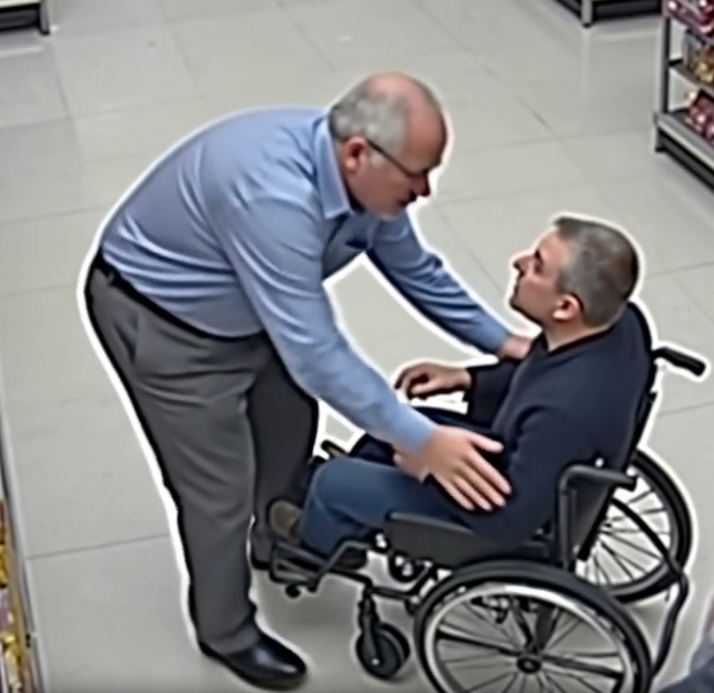
At first, I honestly thought it was a joke. But no, he was totally serious! His wife stood behind him, clearly uncomfortable, but didn’t say a word.
I calmly told him, “I’m sorry, but I actually need this wheelchair to move around.” But even that didn’t end it!
He launched into this whole rant about how his wife had been standing all day and how it would only be fair if I let her use the chair for a while. I tried to keep my cool, explaining that I PHYSICALLY CAN’T WALK, but he just kept going—getting louder and drawing attention from people nearby.
Right when I was about to snap, karma took care of it for me! A Walmart staff member noticed the scene and came over to ask what was going on.
The employee was a middle-aged man with kind eyes and a calm voice. He glanced at me, then at the angry customer, and finally at the silent woman standing behind him.
“Sir, is there a problem here?” the employee asked.
“This guy is refusing to give my wife his wheelchair,” the man snapped. “She’s exhausted. He looks perfectly fine.”
The employee turned to me. “Is that true?”
I took a deep breath. “No. I’m paralyzed from the waist down. I literally cannot walk.”
The man scoffed. “That’s what everyone says.”
Before I could respond, the employee crouched down beside me and noticed the medical leg braces hidden under my jeans, along with the straps securing my feet to the footrests.
“Sir,” the employee said firmly, standing back up, “this customer clearly needs his wheelchair. Your request is inappropriate.”
The man’s face turned red. “So what, my wife just has to suffer?”
His wife finally spoke, her voice barely above a whisper. “It’s okay… we can go.”
But he wasn’t done.
He started raising his voice, accusing Walmart of discrimination, claiming the world was “unfair to hardworking people,” and insisting that I was being selfish.
That’s when another employee arrived.
Then another.
And finally, a store manager.
The manager listened quietly, then asked the man a single question:
“Sir, are you demanding that a disabled customer give up his mobility device?”
The man hesitated.
“Well… when you put it like that…”
“Then I’m going to have to ask you to leave,” the manager said. “This behavior violates our customer conduct policy.”
The man exploded.
He shouted about lawsuits. He cursed. He blamed everyone except himself.
Security was called.
As he was escorted out, his wife avoided eye contact with everyone. Her shoulders were slumped, her face full of embarrassment.
Before leaving, she turned back to me and whispered, “I’m sorry.”
The store fell quiet again.
The manager apologized to me personally and offered assistance with my shopping. A few nearby customers even came over to say they were sorry I had to go through that.
But what stuck with me the most…
Was the look on that woman’s face.
Because something told me this wasn’t the first time her husband had acted like this.
And judging by the way she walked out behind him…
it probably wouldn’t be the last.

At first, I honestly thought it was a joke. But no, he was totally serious! His wife stood behind him, clearly uncomfortable, but didn’t say a word.
I calmly told him, “I’m sorry, but I actually need this wheelchair to move around.” But even that didn’t end it!
He launched into this whole rant about how his wife had been standing all day and how it would only be fair if I let her use the chair for a while. I tried to keep my cool, explaining that I PHYSICALLY CAN’T WALK, but he just kept going—getting louder and drawing attention from people nearby.
Right when I was about to snap, karma took care of it for me! A Walmart staff member noticed the scene and came over to ask what was going on.
The employee was a middle-aged man with kind eyes and a calm voice. He glanced at me, then at the angry customer, and finally at the silent woman standing behind him.
“Sir, is there a problem here?” the employee asked.
“This guy is refusing to give my wife his wheelchair,” the man snapped. “She’s exhausted. He looks perfectly fine.”
The employee turned to me. “Is that true?”
I took a deep breath. “No. I’m paralyzed from the waist down. I literally cannot walk.”
The man scoffed. “That’s what everyone says.”
Before I could respond, the employee crouched down beside me and noticed the medical leg braces hidden under my jeans, along with the straps securing my feet to the footrests.
“Sir,” the employee said firmly, standing back up, “this customer clearly needs his wheelchair. Your request is inappropriate.”
The man’s face turned red. “So what, my wife just has to suffer?”
His wife finally spoke, her voice barely above a whisper. “It’s okay… we can go.”
But he wasn’t done.
He started raising his voice, accusing Walmart of discrimination, claiming the world was “unfair to hardworking people,” and insisting that I was being selfish.
That’s when another employee arrived.
Then another.
And finally, a store manager.
The manager listened quietly, then asked the man a single question:
“Sir, are you demanding that a disabled customer give up his mobility device?”
The man hesitated.
“Well… when you put it like that…”
“Then I’m going to have to ask you to leave,” the manager said. “This behavior violates our customer conduct policy.”
The man exploded.
He shouted about lawsuits. He cursed. He blamed everyone except himself.
Security was called.
As he was escorted out, his wife avoided eye contact with everyone. Her shoulders were slumped, her face full of embarrassment.
Before leaving, she turned back to me and whispered, “I’m sorry.”
The store fell quiet again.
The manager apologized to me personally and offered assistance with my shopping. A few nearby customers even came over to say they were sorry I had to go through that.
But what stuck with me the most…
Was the look on that woman’s face.
Because something told me this wasn’t the first time her husband had acted like this.
And judging by the way she walked out behind him…
it probably wouldn’t be the last.
On July 24, 2024, President Joe Biden addressed the nation from the Oval Office, his voice heavy with emotion and eyes glistening with tears, to announce his withdrawal from the 2024 presidential race. This unexpected decision came after months of mounting concerns regarding his age and health, which had been amplified following a challenging debate
Performance in late June. In his heartfelt speech, Biden emphasized that his choice was made in the best interest of the country and the Democratic Party, stating, “The defense of democracy is more important than any title.”
Surrounded by his family—First Lady Jill Biden, his children, and grandchildren—the President reflected on his journey from humble beginnings in Scranton, Pennsylvania, to the highest office in the land. He remarked, “Nowhere else on earth could a kid with a stutter from modest.
Performance in late June. In his heartfelt speech, Biden emphasized that his choice was made in the best interest of the country and the Democratic Party, stating, “The defense of democracy is more important than any title.”
Surrounded by his family—First Lady Jill Biden, his children, and grandchildren—the President reflected on his journey from humble beginnings in Scranton, Pennsylvania, to the highest office in the land. He remarked, “Nowhere else on earth could a kid with a stutter from modest.
Strong Earthquake Strikes Border Region — Communities and Authorities Respond Swiftly

In the early hours of Monday morning, residents living near the China–Myanmar border were jolted awake by a powerful earthquake that sent shockwaves across several countries in Southeast Asia. Registering a magnitude of 7.7, the tremor is already being described by seismologists as one of the most forceful quakes the region has endured in recent decades.
The quake struck suddenly, shaking homes, offices, and schools across hundreds of kilometers. People rushed into the streets in fear, while emergency sirens echoed through several towns and cities. Within minutes, both local and national authorities began organizing rapid response efforts to help the affected population.
The Quake’s Epicenter and Reach
According to the United States Geological Survey (USGS), the earthquake originated roughly 10 kilometers beneath the surface — a shallow depth that intensified its destructive potential. The tremors spread widely, reaching southern China, northern Thailand, and several parts of Myanmar.
Residents from urban centers to remote villages reported the ground shifting violently beneath them. In some areas, the movement was described as a rolling wave, while in others, it felt like a sudden violent jolt. The difference in perception highlights how seismic waves travel differently through soil, rock, and mountainous terrain.
Communities closest to the epicenter experienced the most severe shaking. Homes that were not built to withstand such forces suffered significant structural damage. In larger cities farther away, the tremor was still strong enough to cause panic and evacuations.
Immediate Reactions: Fear, Confusion, and Damage
The earthquake struck without warning in the pre-dawn hours, catching many people off guard. Residents, some still in nightclothes, poured into the streets barefoot. Families clutched one another, anxiously watching buildings sway and crack.
Eyewitnesses in northern Thailand described how streetlights flickered and windows shattered. In China’s Yunnan province, apartment blocks shook for nearly a minute, leaving people terrified to return indoors. In Myanmar, villages near the border reported collapsed walls, damaged roads, and widespread power outages.
Critical infrastructure was also impacted. Electricity grids failed in several towns, water lines ruptured, and mobile networks went offline, making it difficult for people to check on loved ones. The breakdown in communication added to the confusion, particularly for families separated across different regions.
Human Toll: Losses and Injuries
Initial reports from local governments confirmed dozens of deaths across the affected regions, with hundreds of injuries. Tragically, some individuals remain trapped beneath collapsed buildings, and rescue teams continue to work tirelessly to reach them.
Hospitals in the hardest-hit areas are overwhelmed. Emergency rooms quickly filled with patients suffering from broken bones, head injuries, and cuts caused by falling debris and shattered glass. Doctors and nurses are working around the clock, while volunteers line up to donate blood and assist with patient care.
Officials caution that the casualty numbers are likely to increase as search-and-rescue missions reach more isolated communities. Many mountain villages are difficult to access due to landslides and damaged roads, which has slowed the arrival of emergency aid.
Rescue Operations Underway
Within hours of the quake, local authorities mobilized first responders, soldiers, and volunteers. Specialized search-and-rescue teams equipped with heavy machinery, sniffer dogs, and thermal imaging cameras began combing through debris.
Their mission is urgent: survival rates for those trapped beneath rubble decrease significantly after the first 48 hours. “Every second counts,” said Dr. Li Wei, a disaster relief coordinator in Yunnan province. “We are focusing on reaching as many people as possible before it is too late.”
Rescue efforts face enormous challenges. Roads are cracked or blocked, bridges are unstable, and continuing aftershocks make the work dangerous. Yet, stories of resilience are emerging: in one case, a child was pulled alive from beneath the remains of a collapsed school, giving hope to anxious families awaiting word about missing relatives.

In the early hours of Monday morning, residents living near the China–Myanmar border were jolted awake by a powerful earthquake that sent shockwaves across several countries in Southeast Asia. Registering a magnitude of 7.7, the tremor is already being described by seismologists as one of the most forceful quakes the region has endured in recent decades.
The quake struck suddenly, shaking homes, offices, and schools across hundreds of kilometers. People rushed into the streets in fear, while emergency sirens echoed through several towns and cities. Within minutes, both local and national authorities began organizing rapid response efforts to help the affected population.
The Quake’s Epicenter and Reach
According to the United States Geological Survey (USGS), the earthquake originated roughly 10 kilometers beneath the surface — a shallow depth that intensified its destructive potential. The tremors spread widely, reaching southern China, northern Thailand, and several parts of Myanmar.
Residents from urban centers to remote villages reported the ground shifting violently beneath them. In some areas, the movement was described as a rolling wave, while in others, it felt like a sudden violent jolt. The difference in perception highlights how seismic waves travel differently through soil, rock, and mountainous terrain.
Communities closest to the epicenter experienced the most severe shaking. Homes that were not built to withstand such forces suffered significant structural damage. In larger cities farther away, the tremor was still strong enough to cause panic and evacuations.
Immediate Reactions: Fear, Confusion, and Damage
The earthquake struck without warning in the pre-dawn hours, catching many people off guard. Residents, some still in nightclothes, poured into the streets barefoot. Families clutched one another, anxiously watching buildings sway and crack.
Eyewitnesses in northern Thailand described how streetlights flickered and windows shattered. In China’s Yunnan province, apartment blocks shook for nearly a minute, leaving people terrified to return indoors. In Myanmar, villages near the border reported collapsed walls, damaged roads, and widespread power outages.
Critical infrastructure was also impacted. Electricity grids failed in several towns, water lines ruptured, and mobile networks went offline, making it difficult for people to check on loved ones. The breakdown in communication added to the confusion, particularly for families separated across different regions.
Human Toll: Losses and Injuries
Initial reports from local governments confirmed dozens of deaths across the affected regions, with hundreds of injuries. Tragically, some individuals remain trapped beneath collapsed buildings, and rescue teams continue to work tirelessly to reach them.
Hospitals in the hardest-hit areas are overwhelmed. Emergency rooms quickly filled with patients suffering from broken bones, head injuries, and cuts caused by falling debris and shattered glass. Doctors and nurses are working around the clock, while volunteers line up to donate blood and assist with patient care.
Officials caution that the casualty numbers are likely to increase as search-and-rescue missions reach more isolated communities. Many mountain villages are difficult to access due to landslides and damaged roads, which has slowed the arrival of emergency aid.
Rescue Operations Underway
Within hours of the quake, local authorities mobilized first responders, soldiers, and volunteers. Specialized search-and-rescue teams equipped with heavy machinery, sniffer dogs, and thermal imaging cameras began combing through debris.
Their mission is urgent: survival rates for those trapped beneath rubble decrease significantly after the first 48 hours. “Every second counts,” said Dr. Li Wei, a disaster relief coordinator in Yunnan province. “We are focusing on reaching as many people as possible before it is too late.”
Rescue efforts face enormous challenges. Roads are cracked or blocked, bridges are unstable, and continuing aftershocks make the work dangerous. Yet, stories of resilience are emerging: in one case, a child was pulled alive from beneath the remains of a collapsed school, giving hope to anxious families awaiting word about missing relatives.
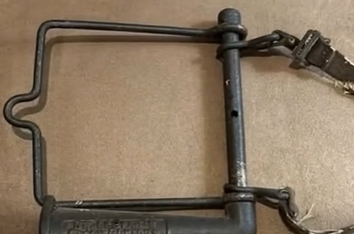
When people stumble across this gleaming brass object with a worn leather strap, it often sparks curiosity—what could something so intricate and sturdy have been used for? The answer takes us back to a time when veterinary care relied more on craftsmanship and ingenuity than modern technology.
This fascinating item is a horse drencher, a once-essential tool used by caretakers to safely administer liquid medicine to horses. Long before today’s specialized equipment existed, this simple yet clever device played a crucial role in keeping working animals healthy, especially when quick treatment was needed.
The horse drencher wasn’t just functional—it was a piece of craftsmanship. Made from solid brass and often customized with unique touches, each drencher reflected the pride of its owner.
Its design included a small funnel connected to a bit that gently held the horse’s mouth open, allowing medicine to be guided smoothly without causing distress. Though using it required patience and a steady hand, the drencher proved highly effective for its time, showcasing the creativity and dedication of early animal caretakers.
As veterinary science advanced, new tools such as syringes, stomach tubes, and modern dosing equipment gradually replaced the drencher. These updated methods made administering medicine safer, quicker, and far more comfortable for horses. The shift marked a significant evolution in animal care, moving from handmade tools to scientifically developed techniques. Yet even as technology improved, many in the animal-care world continued to admire the drencher for the important role it once played.
Today, horse drenchers are cherished as pieces of history rather than instruments in practice. Collectors value their durability and beauty, while historians see them as meaningful reminders of veterinary progress. Each one tells a story—not just of an old method, but of the bond between humans and animals, and the lengths people went to provide care with the resources they had. Though no longer used, these brass tools remain symbols of compassion, craftsmanship, and the early foundations of modern veterinary medicine.
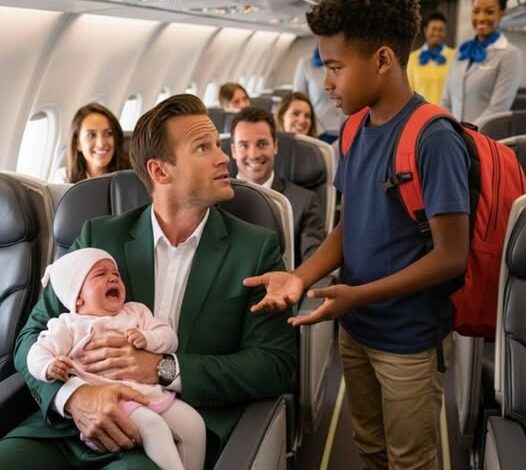
The overnight Boston–Zurich flight had barely left the runway when the first-class cabin filled with the kind of crying that shakes walls. Baby Nora Whitman—seven months old, overtired, overwhelmed—let loose a wail so fierce it drowned out the engines. Passengers shifted in their leather seats, their patience thinning by the minute. A few forced smiles. Most didn’t bother.
In the center of the chaos sat her father, Henry Whitman. Billionaire. Market killer. A man who could silence a boardroom with a single raised eyebrow. Yet here he was—sleeves rolled up, suit jacket abandoned, pacing circles with a screaming infant who didn’t care one bit about his net worth.
He’d tried everything the nanny couldn’t: walking, bouncing, whispering, pleading. Nothing helped. Nora cried until her face was red and her tiny fists shook. Henry heard every annoyed sigh, every passive-aggressive throat clear. A woman in pearls muttered loudly, “I paid for first class, not this.” An influencer angled her phone just enough to record the spectacle.
Henry felt powerless in a way he never had—not in hostile takeovers, not in economic crashes. This was his daughter, and he couldn’t soothe her. That failure cut deeper than any loss he’d taken on paper.
At the front of the cabin, in seat 2A, sat eight-year-old Liam Carter. Brown curls, sticker-covered backpack, traveling with his mother—a worn-out ER nurse heading to a Geneva conference. Liam watched Henry struggle, watched Nora’s face scrunch with misery, watched the adults around him sink into irritation instead of empathy.
“Mom?” he whispered. “The baby’s really sad.”
“I know, honey,” she said, rubbing her eyes. “Try to rest.”
But he didn’t. He unbuckled, stood up, and walked straight down the aisle like he had every right to be there. He stopped in front of Henry, who looked half-defeated, half-relieved that someone—anyone—wasn’t scowling at him.
Liam tilted his head. “Can I help?”
Henry blinked. “You… want to help with her?”
“My baby cousin cries like that. I know what to do.”
The flight attendants froze. Passengers leaned in. No one stopped the kid.
“What do I do?” Henry asked, voice low, cracked with exhaustion.
Liam demonstrated how to hold the baby differently—more secure, angled just right. Henry followed, adjusting Nora in his arms. Her screaming dipped for a moment, then surged again.
“Now tap her back. Soft. Like this.” Liam drummed the air with gentle rhythm. Henry copied him.
Nora’s cries wavered, but didn’t stop.
“And now,” Liam said, “her song.”
Henry frowned. “Her… what?”
“Every baby has a song. You just haven’t found hers yet.”
And from his pocket, Liam pulled a tiny harmonica—scratched, stickered, clearly loved. Henry almost laughed, but he nodded.
Liam lifted it and played. A simple, cheerful tune. Imperfect, unpolished, but warm. A child’s heartbeat in musical form.
Nora stopped mid-cry.
She stared at the boy with wide, trembling eyes. The hiccups died out. Her fists unclenched. Her breath steadied. A full-body calm washed over her. Then, as if the sound itself tucked her in, she fell asleep on Henry’s shoulder.
The cabin went silent. Shock. Awe. A few soft laughs. A couple of tears.
Henry stared at his daughter, stunned, then at Liam. “You’re a miracle,” he whispered.
“She just needed a friend,” Liam said simply.
His mother rushed over, mortified. “Liam, you can’t just wander—”
Henry stood straight, shaking his head. “Ma’am, your son just saved me. Saved this flight. And reminded me what kindness looks like.”
He reached into the overhead bin and pulled out a velvet gift pouch—meant for a Swiss partner. Inside was a gold fountain pen worth more than Liam’s mom made in months.
“For him,” Henry said.
She refused instantly. “No. He helped because he’s good. That’s all.”
Henry looked at Liam, then at her. “Then let me do something good too.”
He turned to the attendant. “Move them to my suite. I’ll go up front.”
Passengers applauded. Not polite, but genuine. Liam ducked his head, embarrassed but pleased.
Hours later, lights dimmed, Nora sleeping peacefully, Liam reappeared at Henry’s seat.
“Mr. Whitman?”
“Yes, Liam?”
“You still look sad.”
Henry hesitated. Only one person since his wife’s funeral had dared say something like that.
“My wife… Nora’s mom… died a few months ago. I don’t always know what to do.”
Liam thought for a moment, then said quietly, “You don’t have to know everything. You just have to stay.”
Those words hit harder than any truth Henry had faced in the past year. He nodded, swallowing emotion he hadn’t let himself feel.
When the plane landed, no one rushed off. They waited for Henry, Nora, and Liam. People touched the boy’s shoulder, whispered thanks, offered smiles. Henry walked behind him with Nora sleeping peacefully, her tiny hand curled around his tie.
At the gate, Henry knelt to Liam’s height.
“You calmed my daughter,” he said. “But you also reminded me what matters.”
Liam shrugged shyly. “She likes the harmonica. You should get one.”
Henry actually laughed. “Maybe I will.”
The boy added, almost as an afterthought, “And don’t worry. Babies know when their daddy loves them.”
Henry’s vision blurred, but he didn’t look away.
“Thank you, Liam.”
The boy waved and walked off with his mother, disappearing into the crowd.
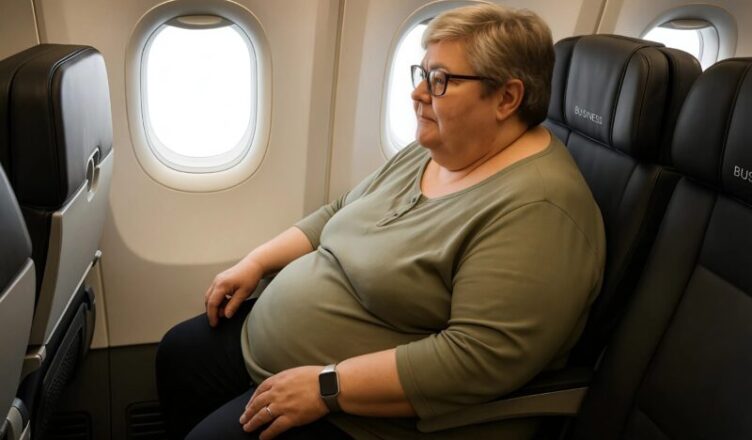
They wanted to kick me off the plane because of my excess weight: I had to put those heartless people in their place 😢😢
I am 63 years old, and I have spent my whole life learning to love and accept myself as I am. An illness disrupted my metabolism, and the weight gain was not my choice. But people don’t always want to understand that.
I have gotten used to sideways looks, to strangers judging my body as if it were on display in a shop window. It is especially hard to deal with this on a plane, where space is already tight and everyone seems to think they have the right to measure you from head to toe.
That day, I was flying as usual. I had bought my ticket in advance and chosen a window seat so I wouldn’t disturb anyone. I sat down, fastened my seatbelt carefully, put my bag under the seat, and got ready for the flight.

But a few minutes later, a young woman about 25 years old appeared next to me — beautiful, well-groomed, wearing a stylish suit. She looked at me and immediately made a face.
“Oh great,” she said loudly, not even trying to be polite. “Another fat woman taking up half the seat. I’m not flying like this!”
I felt a sharp pain inside. But at first, I stayed silent. The young woman continued:
“Fat people should stay at home and not fly,” she snapped at me. “Do you ever think about others?”
Then she called the flight attendant. With her chin arrogantly raised, she pointed at me:
“This woman takes up too much space! Throw her off the plane, or I will sue your airline!”
People began to turn around. The flight attendant looked at me as if she didn’t know how to ask me to leave the plane. I felt myself blushing from humiliation. But at that moment I realized I had to defend my rights, and did something I absolutely do not regret 😨😲 Continuation in the first comment 👇👇
I stood up slowly, turned to the flight attendant and the young woman, and said loudly, for the whole cabin to hear:

“I have every right to be here. I paid for my ticket fair and square. My weight is the result of illness, not laziness or gluttony, as you’d like to think. And I do not owe anyone an explanation for my body.
If you don’t have enough space, you can buy two seats or move elsewhere. But demanding that I be thrown off is discrimination. And if the airline gives in to you, I will sue them — for violating my legally protected rights.”
I paused and looked straight into the woman’s eyes without blinking:
“Your words humiliate me as a human being. You have publicly insulted me, and I am ready to hold you accountable. If you do not stop, I will call the police right here.”
The cabin went silent. The young woman suddenly slumped, her confident face changed. The flight attendant nodded awkwardly and mumbled:

“Ma’am, of course you have the right to fly. I will deal with this passenger.”
In the end, the woman was moved to another seat, further away. I stayed in my window seat, and many passengers smiled at me supportively afterward. One woman quietly said:
“Thank you for those words. You were very brave.”
At that moment I felt proud. I am not to blame for my body. And no one has the right to turn me into an outcast.
 Top Video Viral
Top Video Viral